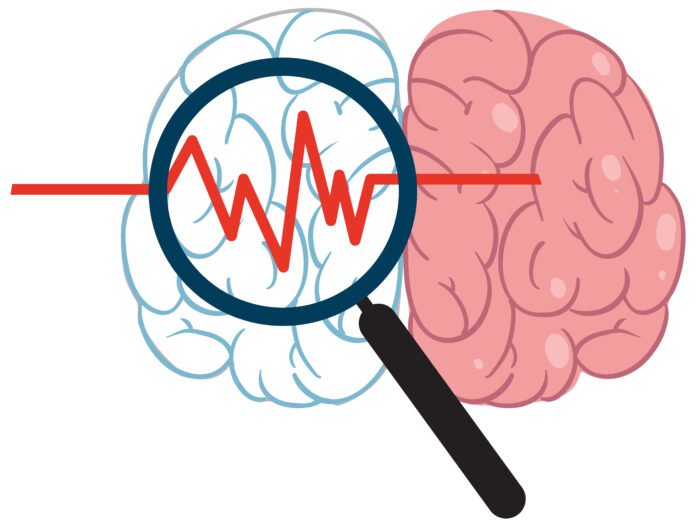Your brain is the pivot point of your abilities, thinking and memories. It plays a central role in managing all data you’ve collected throughout your life whether in the form of emotions, thoughts, connection with others or learning. But growing old or in out-of-work old age is the phase of life when you experience some brain changes that cause Cognitive Decline including low approach in skills, learning or thinking capabilities.
Through this article you may be able to explore how brain changes cause cognitive decline in old age. It also may help you find out some practical suggestions about how you can keep your brain away from such damage.
What is Cognitive Decline?
Cognitive Decline is the decreased approach of cognitive abilities, including:
- Thinking.
- Reasoning.
- Learning.
- Paying attention.
- Focusing.
- Remembering.
Research has shown that cognitive decline is actually caused due to old age. However, other studies also suggested that some specific brain changes are responsible for cognitive decline in old age. They say physical injury, mental trauma and several types of illness can influence your cognitive abilities and bring changes to them over time.
Stages of Cognitive Decline
According to research, there are four stages for cognition when you get old, including:
No Cognitive Impairment (NCI): This stage doesn’t show any prominent difference between your cognitive abilities or specific skills that you’ve learned or performed throughout your life. This means the capabilities that make up your cognition remain undisturbed and unchanged.
Subjective Cognitive Decline (SCD): At this stage some of your thinking abilities start getting disturbed but the disturbance isn’t strong enough to interfere with your day to day brain functions.
Mild Cognitive Impairment (MCI): This stage makes you experience a decline in your reasoning abilities. You feel difficulty in remembering, making judgments, perceiving the world around you correctly and using language.
Dementia: The last stage is horrible. At this stage you feel difficulty in performing your routine activities like taking care of your health, your body and your living place, driving, paying bills and making food for yourself.
The most common stages that are often observed are NCI and SCD. whereas dementia and MCI are recognized as cognitive disorders that are considered dangerous due to severity of its symptoms.
Signs of Cognitive Decline
Its symptoms and severity varies from person to person. No specific signs are allocated to diagnose its appearance. This is because people do not have capabilities, lifestyle, living circumstances and health history. However, researchers have still helped us by giving some patterns that make you sure about your condition.
If you are at mild stage of cognitive decline, you may:
- Forget scheduled events and formal appointments.
- Have trouble finding the right words to express your feelings and emotions.
- Become overwhelmed by complex projects or tasks.
- Lose or misplace things.
But you cannot confuse typical forgetfulness to cognitive decline because they are totally different. Experts suggest that ordinary forgetfulness is not a sign of mental decline. So you don’t make it a thing that makes you worry.
When to Ask for Medical Help?
Appearance of any of the signs mentioned below is the confirmation that you need an immediate visit to your doctor. The signs include:
- You always ask the same question over and over.
- You experience trouble in recognizing your family members and friends.
- You are lost in once-familiar areas.
- You feel personality and mood changes in yourself like aggression or anxiety.
- You become frustrated with communication difficulties.
How Cognitive Decline is Detected?
You can determine your brain health by visiting your healthcare provider for regular checkups. They help you identify the typical symptoms of the condition when you age. They also sometimes call you fur self-screening guests so that they would be able to check if cognitive decline has attacked your brain areas.
Some of these recommended tests include:
Neuropsychological Tests
Changes in your memory and thinking skills are evaluated by this test. Your doctors ask for this test to check if old age has caused changes in your thinking ability. Common types of tests taken under this group are:
- Everyday Cognition (ECog).
- Hoping Kong Brief Cognitive Test (HKBC).
- Mini-Mental Stare Examination (MMSE).
- 6-Item Cognitive Impairment Test (6-CIT).
- Sahlgrenska Academy Self-Reposed Cognitive Impairment Questionnaire (SASCI-Q).
- Clinical Dementia Rating (CDR) Scale.
- Montreal Cognitive Assessment (MoCA).
- Memory Complaint Questionnaire (MCQ).
Although all of these tests are not approachable. Even some of them are newly devised for diagnosing the exact stage of cognitive decline and have not enough proof for their verification but experts prefer to rely on these tests to understand how brain changes cause cognitive decline as you age. These tests also help measure how much cognitive decline has been done.
Experimental Tests
Certain blood and spinal fluid tests also have been considered while diagnosing the cognitive decline. In this test, your healthcare professionals try to search for certain proteins linked to Alzheimer’s disease, known as beta-amyloid and tau proteins.
According to recent studies, brain imaging like PET scan or MRI can help locate changes in some parts of the brain but he mentioned tests can help them detect changes in your brain that would happen from the last 20 years or more. However, these tests are very expensive, complex and invasive. Common people can’t afford these tests and also can’t bear its complexity during screening procedures.
Self-Administered Gerocognitive Examination (SAGE) and other Screening Tests
Signs of cognitive decline have different forms and can be identified or screened through different types of tests. These tests are not time consuming and can be performed in a short time. Some of the screen tests used to detect cognitive decline, include:
- Quick Dementia Rating System (QDRS).
- Mini-Cog.
- Self-Administered Gerocognitive Examination (SAGE).
- Saint Louis University Mental Status (SLUMS) Test.
- AD8 Dementia Screening Interview.
According to researchers, the SAGE is the most common screening test that can provide results online. You can complete it at your home or doctor’s office. It is different from other screening tests but slightly complex.
Studies show that SAGE is the test that detects cognitive decline in older people within a short time as compared to MMSE or any other test. It also gives you around 85% accuracy in results. However, experts do not suggest relying on these quick tests to diagnose cognitive decline or dementia on your own. Research suggests that a decline in cognition through your scores is just an indication to do more authentic tests under the supervision of professional doctors to complete thorough evaluation.
Other Tests
Doctors sometimes also ask for a blood test to check if something else like B12 deficiency or Hypothyroidism may be found. These factors also become a cause of changes in your thinking abilities. In addition some brain imaging tests like magnetic resonance imaging (MRI) can also be used to check if something linker brain tumor or stroke is the actual cause of cognitive decline symptoms.
Causes of Cognitive Decline
Age-related changes in thinking and memory are obvious and natural. There are a lot of reasons for cognitive decline but underlying health conditions are at the top, including:
- High blood pressure.
- Diabetes.
- Depression.
- Vascular disease.
- Sleep deprivation.
Some neurological conditions also become the root of cognitive decline, such as:
- Frontotemporal Dementia.
- Alzheimer’s disease.
Studies found that your family history a;so plays a key role in causing the symptoms of cognition loss. For example your genes often play 70 to 75% role in causing cognitive decline as you get older.
At What Age Cognitive Decline Usually Starts?
Your overall health greatly influences your brain and its functions. Everyone in the universe is different and behaves differently under certain curriculum stances. According to studies, women start experiencing cognitive decline symptoms around their 70s while dementia symptoms usually appear in around their 80s. On the other hand men start experiencing symptoms of cognitive decline near their 80s. So it is clear that women start losing their memory or cognition earlier than men.
But the most important thing to remember is that everyone who experiences the symptoms is also caught by dementia later. However, your education levels may affect the age of onset.
Another study found that cognitive decline in white people, cognitive decline appears 5-6 years earlier than others. Researchers also suggested that disparity might be related to certain differences in accumulated stress or healthcare access through their life span. They also claimed that people who had studied to higher education experienced symptoms of cognitive decline at very late ages. The reason may be their mental activity and possessing more social connections in life. They also got quick access to earlier treatment and healthcare sources for her medical problems.
Risks related to Faster Cognitive Decline
Major risk factors for cognitive decline are family history, age and genes. However, researchers have introduced some more factors that might play important role on on-setting the symptoms,such as:
- Hearing loss.
- Smoking.
- Stroke.
- High blood pressure.
- High cholesterol levels in blood.
- Diabetes.
You can control some of these factors but others can’t be controlled. You need to ta;k to your healthcare provider to devise a plan to delay the brain changes and stay healthy physically and mentally.
In addition some mental health conditions and personality traits also cause cognitive decline as you age. These include:
- Anxiety.
- Neuroticism.
- Depression.
- Stress.
According to studies, these factors attack your mental health due to changes in the medial temporal love of your brain.
How to Delay or Prevent Cognitive Decline?
Your genetics has links with age-related cognitive changes. Therefore, you cannot do much to prevent it. But there are some ways to stay away from causing factors that may help preserve your mental approach, ability to think and keep your brain healthy.
A few research-supported steps to delay a cognitive decline are jotted below:
- Avoid smoking or use of tobacco.
- Increase your social connections.
- Keep yourself active physically.
- Add lots of green vegetables into your diet. DASH and Mediterranean diets are recommended to prevent cognitive decline.
- Avoid excessive use of alcoholic beverages. Protect your brain from injury.
According to studies, taking multivitamins regularly help ease cognitive decline. However, more research is needed to verify the reality.
How to Support Caregivers?
Providing support to one who is experiencing cognitive decline is challenging in many ways. But you can learn precious things during your care-giving duration. You may find a sense of connection and purpose in caring for your loved one when they experience symptoms of the condition. But it is a demanding and stressful task. Sometimes, as a caregiver, you may feel angry, frustrated, depressed, isolated and resentful.
Therefore, it is recommended that caregivers should strictly take care of their own physical and mental health they were looking after for the needs of their loved ones.
If you’re a care giver, always prioritize your social relationships, exercise regularly and eat a healthy and balanced diet. If your loved one is passing through a difficult time of memory changes or cognitive decline, you can find help from the following places:
- Caregiver action center.
- National adult services association.
- Family caregiver center.
- Eldercare house.
Conclusion
It is natural to experience changes in your ability to communicate, remember, thinking and reason. These changes sometimes are mild and considered as part of the aging process but for some people these changes in brain function becomes a serious health condition because they experience difficulty in their routine life activities. They face problems like confusion, forgetfulness, disruption in day-to-day living and language difficulties. This is cognitive decline.
If you experience the symptoms of cognitive decline as you age, you may feel changes in your personality, mood and ability to work. Here you need professional medical help to check whether you are at risk of losing memory or more significant brain changes. You can ask for help from your doctor so that they may guide you about self-assessment tests like SAGE to determine the marvel of risk of cognitive changes.
So keeping your brain healthy is important, you can do it by eating a healthy diet, taking exercise regularly, controlling your blood pressure, cholesterol levels and stress.
However, certain factors like family history, age and genes cannot be controlled. But doing efforts to keep your mind and body healthy can make a big difference to healthy aging and delaying cognitive decline.







